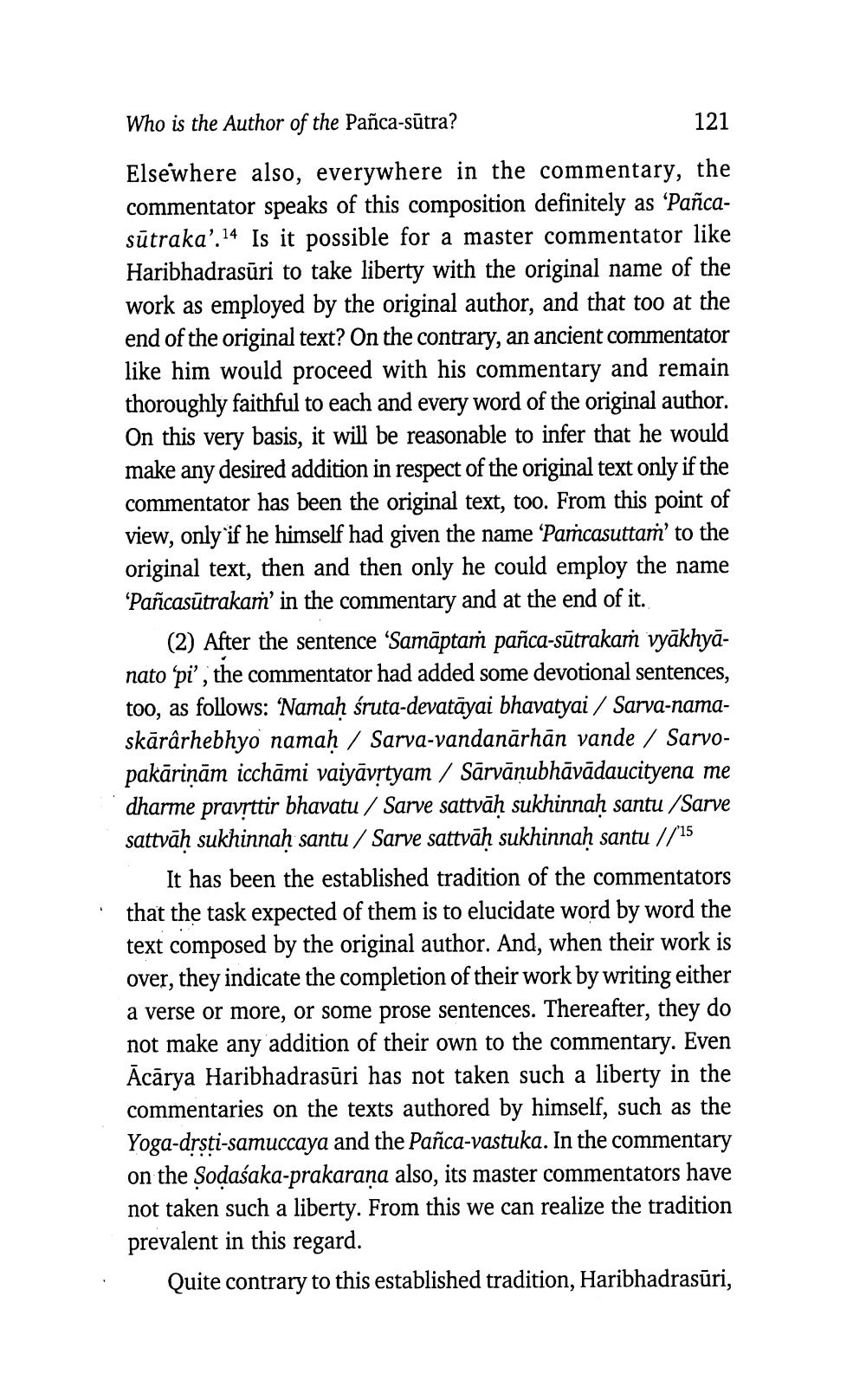________________
121
Who is the Author of the Panca-sūtra? Elsewhere also, everywhere in the commentary, the commentator speaks of this composition definitely as 'Pañcasūtraka'.14 Is it possible for a master commentator like Haribhadrasūri to take liberty with the original name of the work as employed by the original author, and that too at the end of the original text? On the contrary, an ancient commentator like him would proceed with his commentary and remain thoroughly faithful to each and every word of the original author. On this very basis, it will be reasonable to infer that he would make any desired addition in respect of the original text only if the commentator has been the original text, too. From this point of view, only if he himself had given the name ‘Parcasuttaṁ to the original text, then and then only he could employ the name ‘Pañcasūtrakaṁ' in the commentary and at the end of it.
(2) After the sentence ‘Samāptaṁ pañca-sūtrakaṁ vyākhyānato 'pi', the commentator had added some devotional sentences, too, as follows: ‘Namaḥ śruta-devatāyai bhavatyai / Sarva-namaskārârhebhyo namaḥ / Sarva-vandanārhān vande / Sarvopakāriņām icchāmi vaiyāvrtyam / Sārvānubhāvādaucityena me dharme pravrttir bhavatu / Sarve sattvāḥ sukhinnaḥ santu /Sarve sattvāḥ sukhinnaḥ santu / Sarve sattvāḥ sukhinnaḥ santu //15
It has been the established tradition of the commentators that the task expected of them is to elucidate word by word the text composed by the original author. And, when their work is over, they indicate the completion of their work by writing either a verse or more, or some prose sentences. Thereafter, they do not make any addition of their own to the commentary. Even Ācārya Haribhadrasūri has not taken such a liberty in the commentaries on the texts authored by himself, such as the Yoga-drsti-samuccaya and the Pañca-vastuka. In the commentary on the Sodaśaka-prakarana also, its master commentators have not taken such a liberty. From this we can realize the tradition prevalent in this regard.
Quite contrary to this established tradition, Haribhadrasūri,




